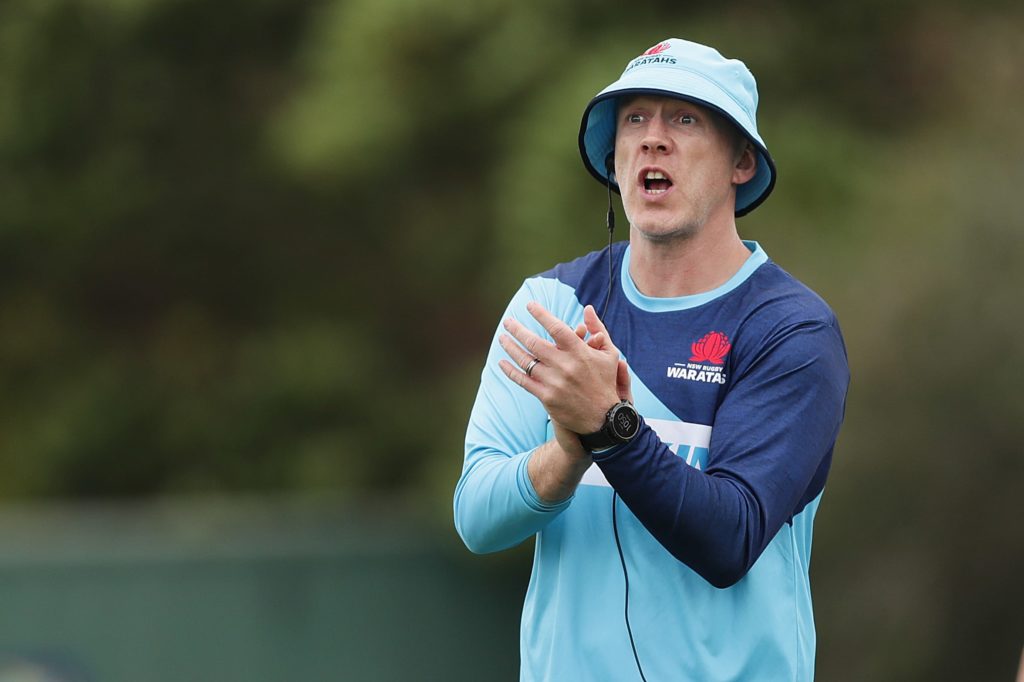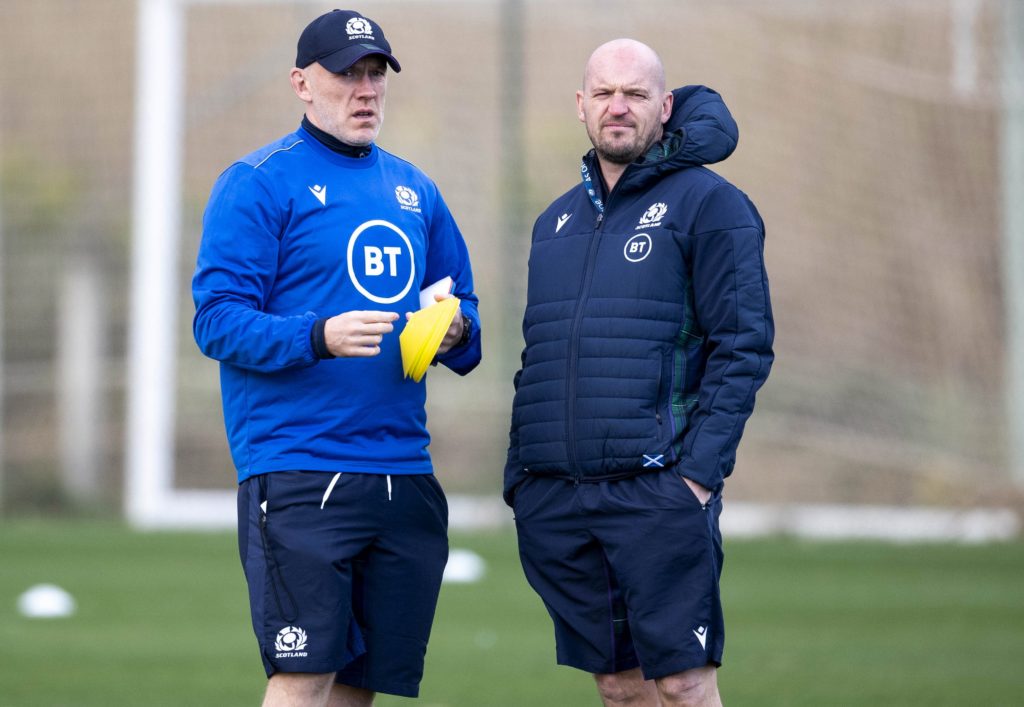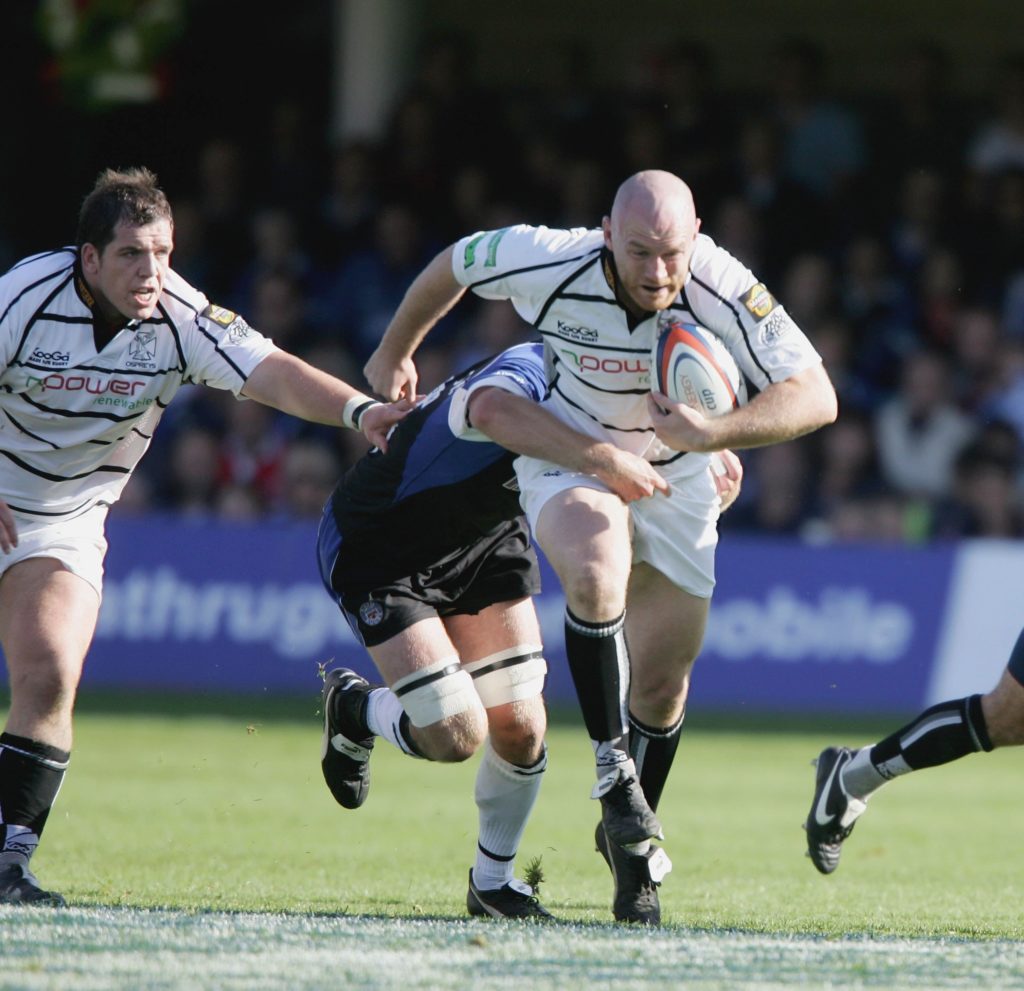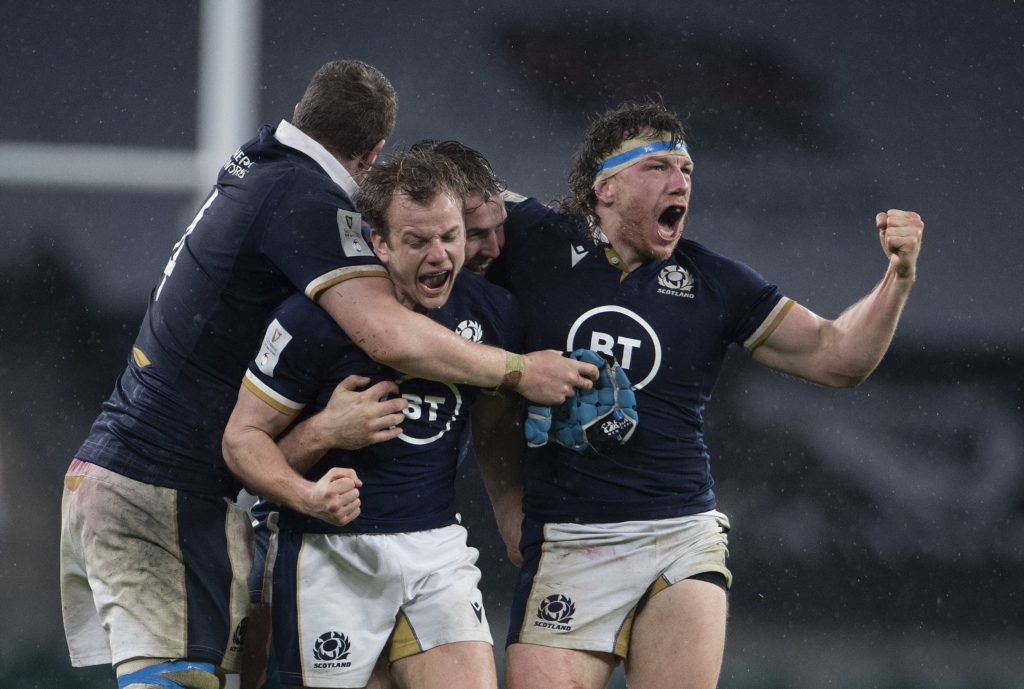The Malabar Headland National Park in New South Wales is about as far removed from Neath, South Wales as you can get. As Steve Tandy gazed out over the vast expanse of the South Pacific towards the tail end of 2018, it occurred to him that his horizon had broadened immeasurably. Had you asked him a year previously whether he’d be living in a granny flat near the ocean while his wife and three children were 12,000 miles away, he’d have thought you were high on fumes from the Port Talbot Steelworks.
As Albert Einstein said, in the midst of every crisis lies great opportunity. The crisis in question was Tandy’s sacking from the club to which he’d dedicated his career. Defeat by Clermont Auvergne in a fiendishly difficult Heineken Cup pool was his final act with the Ospreys. He considers himself a man of action rather than words, and reflecting today, he knew his next move had to be a decisive one.
“When you get sacked, it’s the truest test of your character,” he says from his hotel room in Edinburgh. “What are you going to do about it? Are you going to sit there and mope or you going to reflect and learn from it? The line of work you’re in, you know that that day’s coming at some point. When it did, my father told me that as long as I can look myself in the mirror and say I was honest and true to myself, that’s all that matters.”
We lived ten minutes from the ground, so every day we’d be up with the sun, travelling to work. There was a cafe en route, where we’d stop and and have a massive coffee out of these litre sized mugs, and we’d be behind our desks by 6.30am.
Steve Tandy on his Waratahs adventure
Salvation arrived in the form of a phone call from Andrew Hore, chief executive of the New South Wales Waratahs, and Tandy’s former boss at the Ospreys. An invitation was extended to come to Australia for a few weeks of “personal development”; an opportunity to escape the claustrophobic goldfish bowl. With typical humility, Tandy reveals that his ambitions at this point were modest “the over arching theme in my mind was to spend some time watching Super Rugby, and then see if I could get into the ITM Cup (in New Zealand). Even as a general dogsbody; I’d have been happy to pay my own way in order to learn.”
Hore had sorted accommodation for him, but Daryl Gibson, the Waratahs head coach, insisted he stayed with his family for a few days. The two rugby aficionados got on so well, Tandy ended up living in Gibson’s granny flat at the end of the garden for six weeks. He jokes that Daryl’s wife Liana “inherited another kid” as Tandy’s childlike enthusiasm for the game was rekindled over several nights of deep rugby chat.

So impressed was the former All Black, that he offered him a job. Tandy had to make an awkward phone call to his wife, Karen, to explain that he wouldn’t be coming home just yet. Gibson’s sunny disposition and Sydney’s glorious climate had lifted the gloom. “We lived ten minutes from the ground, so every day we’d be up with the sun, travelling to work. There was a cafe en route, where we’d stop and and have a massive coffee out of these litre sized mugs, and we’d be behind our desks by 6.30am. The boys would be rolling out, getting prepped, music blasting, and they’d end up staying out on the field much longer because the sun was out, it was always boiling.” It was a far cry from a cold, rain-lashed Llandarcy.
When it became apparent this was a long-term gig, after six months of dividing his time between Australia and Wales, Karen and the three girls upped sticks and moved to the other side of the world. Tandy remains ever-grateful for the unconditional support of his family. Having them by his side allowed him to fully immerse himself in his new role.
“I had some amazing experiences and it taught me a lot. If you look hard enough, in most things, there’s learning to be had. Going to Australia and being completely out of my comfort zone, being exposed to a different culture, witnessing how differently the game was perceived in the Southern Hemisphere was so valuable. I’d never been outside of Wales before unless it had been through rugby or on a tour. What was immediately apparent was that there was a lot more confidence in the Aussie players to go out and express themselves.”
I love rugby but I’m in this job because of the people. You need to look after people, to show that you care. The more rounded you are as a person, the better you’ll be able to help your players.
Tandy’s public persona can be misleading. His expression is often impassive; his manner can be brusque. But beneath this gruff exterior lurks an eloquent thinker. As a player, he was the embodiment of an old-school flanker; tough, grizzled, and uncompromising. As a coach, he’s more cerebral than you might imagine. Many years ago, this writer paid him a visit at the Ospreys HQ, and was surprised to see a well-thumbed copy of the Chimp Paradox on his desk. He explained that he was a voracious reader, and regularly consulted self-improvement books in a bid to evolve his coaching style. “You might not tell from looking at me, or listening to me,” he deadpans, “but I love reading and am fascinated by psychology. The more you understand a player, and get inside his head, the more likely you’ll be able to help improve his performance, which will obviously translate to the performance of the team.”
“I love rugby” he continues, “but I’m in this job because of the people. You need to look after people, to show that you care. The more rounded you are as a person, the better you’ll be able to help your players. I always had this notion that to improve, I’d have go away and put myself in a situation where I was uncomfortable. That happened a little sooner than expected, but it’s sped things up and really accelerated my development as a coach.”
Tandy’s latest bedside tome is entitled The Obstacle Is The Way. Its central theme, he says, is “that you can find something good in most challenging situations. When I reflect on personal things: defeats, getting sacked, I consciously step away and take the emotion out, to see the bigger picture. That’s when you’ll see the opportunity to grow. You still feel those emotions, but this helps you process why you’re feeling that way, and encourage you to snap out of things a little earlier. It’s easy to dwell on a negative, to spiral down and beat yourself up over what you’ve done wrong. But at some point you have to see where the growth can come.”

Tandy’s work in tightening up a notoriously slack Waratahs defence didn’t go unnoticed. Another fateful phone call was made, this time by Scotland head coach Gregor Townsend. It came out of the blue.
“We were loving life in Sydney. Tim Rapp, the general manager, had spoken with me about extending, the girls had settled in school, my wife had made loads of friends.” It seemed an idyllic existence, and Tandy’s work-life balance was back where it needed to be. Townsend’s patter though, proved persuasive. “Gregor came out to see me, and when we got chatting I could feel his passion. I’d always admired what he’d done as a coach with Glasgow, how he’d seen the game. I’d looked at the Scotland players, seen the age profile of the group and the talent within and was seriously tempted. We spent a day wandering around Sydney going to a couple of caffs, and chatting rugby.”
Within a few weeks, a formal job offer arrived, and the Tandy tribe was preparing to swap Botany Bay for the Firth of Forth, and a new family home in North Berwick. For someone who prefers to eschew the spotlight, Tandy’s contribution since has been impossible to ignore. During his first Six Nations campaign, Scotland boasted the meanest defence in the competition, conceding just five tries. At the start of this campaign, they restricted England to a meagre 6 points at Twickenham.
“The players have been unbelievable. They ask good questions, they’re a talented group and they’ve wholeheartedly bought into what we’re trying to do. They were good defenders anyway, I’ve just come in a tweaked a few things
The organisation, discipline and doggedness on show was a far cry from the more ragged approach shown in the World Cup that left Scotland dumped out in the pool stage. Tandy, who’s always considered media duties a chore, was inundated with interview requests. He turned them all down on the grounds that he “hates talking about himself.” When pushed now on the ingredients that have transformed Scotland’s defence, he’s quick to defer praise.
“The players have been unbelievable. They ask good questions, they’re a talented group and they’ve wholeheartedly bought into what we’re trying to do. They were good defenders anyway, I’ve just come in a tweaked a few things. Defence doesn’t exist in isolation. It’s linked to your kicking game, how you attack, how you see the game. We’ve got a pretty good balance to our team.”
Balance was what had been lacking. Scotland’s ambition to be the “fastest team in world rugby” was exposed by a Japanese side in the World Cup that proved to be faster and more imaginative than they were. Tandy’s doughty, structured approach has provided the yin to Townsend’s yang.

When Warren Gatland arrived in Wales he picked thirteen Ospreys in his first team to face England. One reason was that the club was familiar with the blitz defence he and Shaun Edwards favoured. Comparisons are now being drawn between Tandy and Edwards. Both are straight-talking disciplinarians, but where Edwards coaches through fear, Tandy’s approach is more nuanced.
“For me, it’s more about encouragement and belief. No-one ever tries to miss a tackle. Mistakes are rarely based on lack of effort. If they are I might be grumpier but it’s about giving the boys a system where they can go and express themselves. What you don’t what to create is a fear of missing a tackle. I wouldn’t say I’m much of a shouter, I want to accentuate the positives in what they do and that has undoubtedly come from my time in Australia, where they do exactly that. You see how confident the boys are in Australia, how they can dust off mistakes rather than dwell on them. You wouldn’t know it from my facial expressions, but I reckon I’ve lightened up a fraction. Not too much, mind.”
Smiling isn’t something Tandy does often; accepting plaudits is something he does even less. Even in the face of a softly lobbed compliment, he’ll apply a defensive flat bat rather than smashing it though extra cover. “When it’s good, I’m not after anything, when it’s bad I’m not after anything either. When I’m away from rugby I just want to be with my family. I’m not searching for pats on the back, and I’m not dwelling on bad press. You know you’re going to get criticism and everyone’s got their opinion. That’s the game. I’ve never been on social media, and being a dinosaur in that respect has helped me stay sane.”
Finn’s an outstanding defender. He’s very competitive and having him in day-to-day makes your defence better because he has got a serious box of tricks. The way he plays tests your defence to its limits.
As anyone who makes the transition from playing to coaching can attest, having to drop players who were previously friends, or even terminate the contracts of those closest to you, can have a potentially ruinous effect on relationships. It’s for this reason that honesty remains Tandy’s most treasured attribute. The question he always asks himself when the road gets rocky is “am I being true to myself?” “That is one thing I would never shy away from, whether it’s with a player, a board member or a friend. I’ve had some tough conversations with my friends in and around the Ospreys, but it was always done with integrity and the hope that the player could see where I was coming from.”
Tandy is also the keen to stress the importance of the collective. This new Scotland isn’t a case of the fleet-footed backs benefiting from the toil and labour of a hard-nosed pack. Everyone needs to buy into his defensive vision, even his star fly-half who, despite his freakish attacking talent, doesn’t see tackling as beneath him.
“Finn’s an outstanding defender. He’s very competitive and having him in day-to-day makes your defence better because he has got a serious box of tricks. The way he plays tests your defence to its limits. As a group, from the loose-heads to the full-backs, everyone is putting in. To become the defensive team that you want to be means you can’t have someone who doesn’t play their part. Every defender has different strengths, some are big hitters, others, like Finn are just really smart.”

Scotland’s barnstorming start to this year’s Six Nations, breaking their 38-year Twickenham hoodoo, was followed by a chastening defeat by Wales. His nationality and closeness to many of the Welsh players in no way diluted his sense of crushing disappointment. His-post match chat with former teammate Alun Wyn Jones was a perfunctory one.
“We had a quick conversation” he grins. “I was probably still sulking. I did congratulate him, but it was pretty short and sharp because I was a bit miserable in that moment. When I’m in something, whether it’s the Ospreys, Waratahs or Scotland I’m fully immersed in it, and when that’s the case, all you want is for the boys to win. I know a lot of the Welsh boys are good guys and were colleagues for a long time, but it’s the game I want to win most as a Scotland coach.”
The misery took a while to subside with Tandy admitting, “three or four days after the game, it was still pretty raw”, but you can’t be down for too long in professional sport, because the next challenge is never far away. In this case, that challenge has shifted just out of reach. Scotland should have been in France this weekend for a match with the title favourites, but a Covid-19 outbreak in the French squad has led to its postponement. Given how cluttered the calendar is, reports suggest there’s a possibility the game might not be played until July. While frustrating, it’s preferable to crowbarring it into next week’s fallow weekend, which would mean as many as ten of Scotland’s best players would be back to their English and French employers for domestic duty.
It’s given Tandy a little longer to ruminate on the Wales defeat, but he refuses to blame Zander Fagerson’s red card, insisting Scotland should have been out of sight before the tight-head’s indiscretion.
The fact remains that had Duhan Van de Merwe evaded one last tackle in the 80th minute, he’d have been under the posts for the winning try. And who was it who made that heroic last-ditch tackle to rescue the game for Wales? It was the centre, Owen Watkin, who in 2015 was given his Ospreys debut by a coach who no doubt imbued in him the grit, determination and perseverance required to pull off such a defensive miracle.
More stories from Ross Harries
If you’ve enjoyed this article, please share it with friends or on social media. We rely solely on new subscribers to fund high-quality journalism and appreciate you sharing this so we can continue to grow, produce more quality content and support our writers.



Comments
Join free and tell us what you really think!
Sign up for free